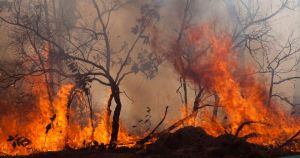At 11 o’clock on 11 November 1918, fighting in the First World War – the most destructive war fought to that date – came to a formal close as Germany, the Allied Powers and the United States concluded an Armistice. Turkey and Austria-Hungary had ceased fighting some days earlier.
Total casualties for WWI are estimated at 20 million dead and 20 million injured. Australia was a small nation with a population of fewer than five million. From this small population base, no less than 416,809 men enlisted of which 302,000 served overseas. Of these, 62,000 were killed and 155,000 wounded.
At least a further 8,000 died of war-related injuries after the war. These figures do not include the neurological trauma inflicted on so many soldiers, which negatively affected their lives and those of their families for many years afterwards.
In these circumstances, it is no surprise that 11 November – the day the carnage stopped – became a date of enduring significance. Armistice Day, as it was known, became the day to commemorate the sacrifice of the war.
THE RED FLANDERS POPPY
The most noticeable symbol of Remembrance Day is the red Flanders poppy. It was popularised in the contemporary poem of the Canadian medical officer Lieutenant Colonel John McCrae. McCrae himself became a victim of the war, dying of pneumonia in 1918. The first stanza of his poem reads:
In Flanders fields, the poppies blow
Between the crosses, row on row,
That mark our place; and in the sky
The larks, still bravely singing, fly
Scarce heard amid the guns below
Macrae’s poem inspired American Professor Moina Michael, who declared she would always wear a red poppy as a symbol of remembrance for those who served in the war. Involved in teaching disabled ex-servicemen, she thought of selling silk red poppies to raise money to support the men.




